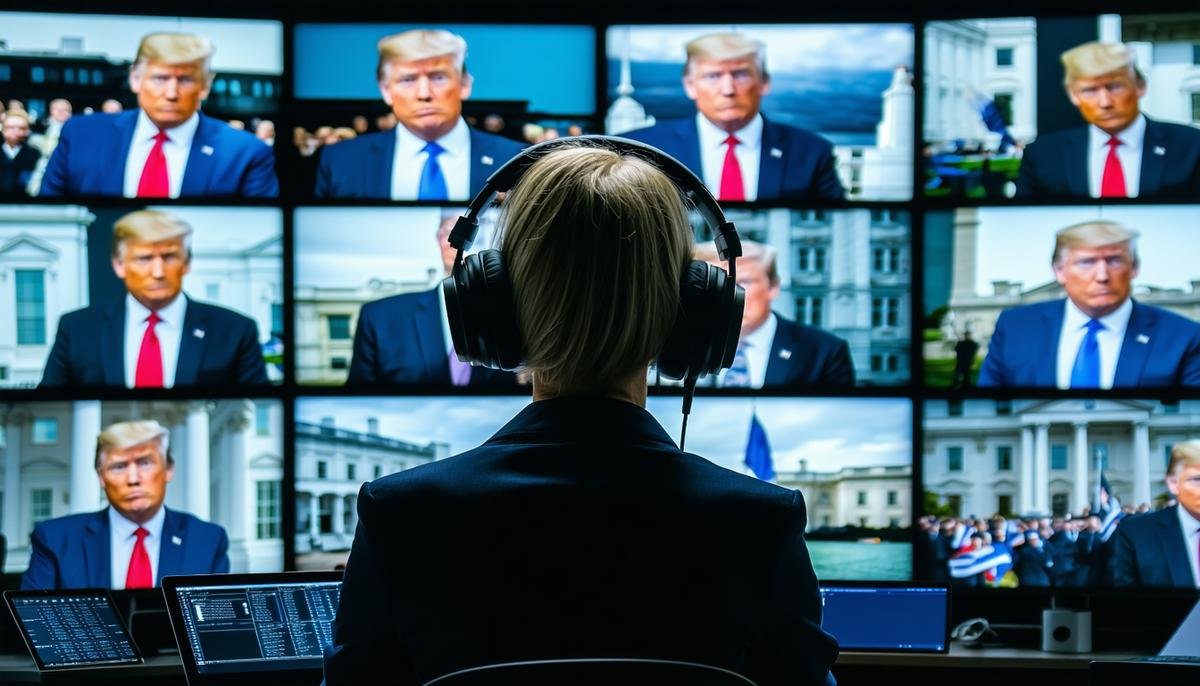AI in Voter Targeting
AI has transformed political campaigning by refining voter-targeting precision. It analyzes vast data landscapes to customize messages for individual voters based on their behaviors and preferences. This shift from broad demographic targeting to microtargeting offers new possibilities for campaigns.
By examining social media habits, purchase histories, and voting patterns, AI helps campaigns fine-tune their messaging. This allows for personalized communications that resonate with each voter. Campaigns can also adjust strategies instantly based on real-time feedback.
However, this precision raises privacy concerns and ethical questions about data use. There are also worries about increased polarization, as personalized messages may reinforce existing beliefs and create echo chambers.
Despite these challenges, AI's potential for more meaningful voter engagement remains significant. The future of political campaigning will likely involve balancing the benefits of personalization with privacy concerns and the need to avoid further polarization.

AI and Misinformation
AI's ability to create realistic misinformation, particularly through deepfakes, presents new challenges in political discourse. Recent incidents, such as AI-generated robocalls during primaries, highlight the potential for deception and manipulation of public perception.
The rapid spread of AI-generated false content across networks amplifies its reach and potential harm. This not only skews public perception but also threatens trust in news sources, social platforms, and political institutions.
Regulating AI-generated content is difficult, as legislation struggles to keep pace with technological advancements. The balance between censorship and freedom of information remains a key concern.
The psychological impact of deepfakes and misinformation is significant, breeding doubt and cynicism among voters. However, AI also offers potential solutions, with the development of tools to detect and flag fake content.
Moving forward, collaboration between practitioners, policymakers, and technologists is crucial to harness AI's benefits while mitigating its risks in political discourse.

AI in Campaign Messaging
AI tools are streamlining how campaigns craft and refine their communications. Algorithms analyze data from social media, news trends, and surveys to identify issues that resonate with different voter segments. This enables campaigns to adjust messaging quickly and precisely.
Campaigns can deploy multiple message variations, gauge their performance through real-time feedback, and refine them continuously. This adaptive approach ensures that only the most effective strategies are amplified across platforms.
However, the rapid dissemination of AI-generated content can lead to unintended consequences, such as messages being taken out of context or misunderstood. The speed at which information spreads also contributes to the potential circulation of misinformation.
While AI clearly enhances campaign messaging capabilities, it requires vigilant use. Campaigns must ensure that the technology elevates their messaging without compromising integrity or authenticity.

AI's Impact on Polling
AI is transforming political polling through the use of AI agents that simulate human responses. These virtual voters can replicate human behaviors and opinions, providing insights into voter sentiment without direct human participation.
The benefits of AI in polling include:
- Immunity to declining response rates
- Ability to process vast amounts of data quickly
- Real-time insights for campaign strategy refinement
However, AI-assisted polling is not flawless. Its accuracy depends on the quality and currency of training data, and it may struggle to capture nuanced aspects of human decision-making. AI models may also lack the contextual understanding that experienced human pollsters provide.
A collaborative approach, combining AI's immediacy and scale with human expertise, offers the most comprehensive view of voter landscapes. This synthesis aims to harness technology while retaining valuable human insight in political polling.

AI and Foreign Influence
Foreign entities increasingly use AI for election interference through disinformation campaigns and coordinated troll farms. AI enhances the creation and dissemination of misleading content, exploiting societal divisions and undermining confidence in democratic processes.
These operations pose significant challenges to election integrity by blending authentic and fabricated content, making it difficult for voters to discern truth from fiction. This can erode public trust in both the electoral process and democratic institutions.
Countering AI-driven interference requires a multifaceted approach:
- Developing advanced AI algorithms to identify inauthentic accounts and content
- Implementing stricter guidelines for social media platforms
- Collaborating with tech companies to strengthen digital infrastructure
- Enhancing public education and digital literacy efforts
As AI tactics evolve, countermeasures must adapt to protect the integrity of future elections and strengthen democratic resilience against external intrusions.

As AI reshapes political landscapes, it offers powerful tools for engagement and precision while posing challenges that require careful consideration. Balancing these aspects is crucial for maintaining trust and integrity in the political process.
- Trump D, Kushner J, Parscale B, et al. Inside the Trump Campaign's Big Data Operation. New York Times. 2018.
- Biden J, O'Malley Dillon J, Bonsignore M, et al. How the Biden Campaign Used AI to Optimize Ad Placements. Democratic National Committee. 2020.
- Smith C. How Artificial Intelligence Swayed the Midterm Elections—and Will Become a Permanent Feature of Democracy. Forbes. 2022.




